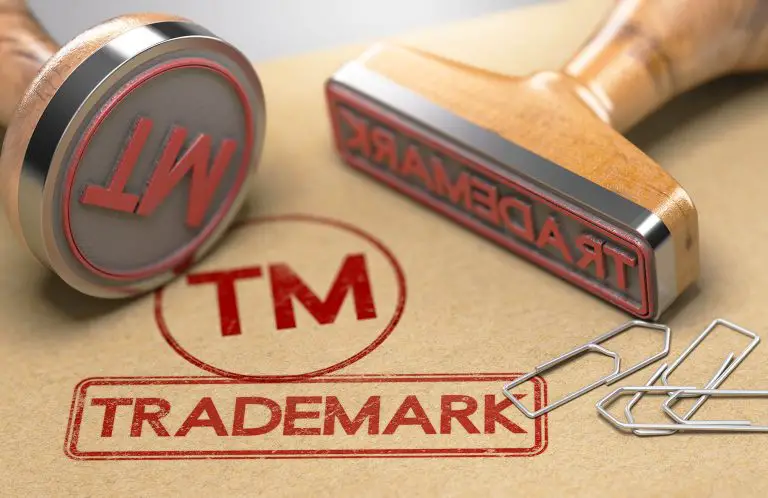How to Become a Patent Attorney?
How to Become a Patent Attorney?
The earlier in life you figure out you want to become a patent attorney the better because that way you can focus on studying the subjects that the USPTO wants you to have a background in. To become a patent attorney, the USPTO requires applicants to have a degree or background in science or engineering, as well as a law degree from an accredited law school in the United States. The individual must then pass the patent bar exam. We will dive into more detail about the requirements below.
Steps to Become a Patent Attorney
- Be a United States Citizen or Legally Reside in the United States
- Complete a Bachelors Degree in one of the following fields:
- Biology
- Chemistry
- Physics
- Engineering
- Computer Engineering
- Electrical Engineering
- Microbiology
- Organic Chemistry
- Pharmacology
- Prepare for, enroll in, and pass the LSAT (Law School Admission Test)
- Complete your law degree from an ABA accredited law school
- Have Good Moral Standing
- Pass the Bar Exam in your jurisdiction
- Pass the Patent Bar Exam
Required Education and Background to Become a Patent Attorney
According to the USPTO, to become a patent attorney an individual is required to have a degree in science or engineering, however, there is an exception to this rule. If you don’t have a bachelor’s degree in a subject other than the subjects we covered, you may still be eligible to become a patent attorney. But you must show the patent office that you have the scientific and technical background that you would have had, had you completed a degree in the subjects we covered. That said, you may be able to become a patent attorney without having to obtain a science degree.
If you can satisfy any one of the following criteria, the patent office may allow you to practice patent law:
- Complete 24 hours of physics courses required to obtain a physics degree, or
- Complete 36 hours in a combination of courses:
- 8 semester hours in chemistry
- 8 semester hours of physics
- 24 semester hours in biology, botany, microbiology, or molecular biology, or
- Complete 30 hours of chemistry courses required to obtain a chemistry degree, or
- Complete 40 semester hours in the following:
- 8 semester hours of chemistry
- 8 semester hours of physics, and
- 32 semester hours of:
- Chemistry
- Physics
- Biology
- Microbiology
- Molecular biology
- Engineering
If you’re interested in patent law, but not sure if being a patent attorney is quite right for you, you can learn more about Patent Agents and Patent Examiners by reading my articles all about them and what they do. Just click on those links.
Transcripts
Once an applicant has obtained a degree or completed the necessary coursework, he will have to submit official transcripts to the USPTO. The USPTO only accepts official copies, they do not accept copies or unofficial transcripts. If an applicant chooses to do so, he can send the transcript himself or have the educations institution he attended submit the transcript.
Patent Bar Examination
The USPTO Regsitration examination, commonly known as the patent bar exam, is a 100 question multiple-choice exam. To pass the exam, an individual must answer 70% of the questions correctly or 63 out of the 90 questions correctly.
So, where did we get the 90 questions instead of 100 questions? We stated 90 questions because even though the exam will have 100 questions, 10 of those questions will be on the exam for beta testing and will not be counted towards an examinees score.
Good Moral Standing
If you thought that you only had to have good moral standing to practice law in your state, you’re mistaken. The USPTO also requires those seeking to register with the USPTO to have good moral standing. That is, an individual must not have engaged in dishonest behavior or convicted of a crime that requires dishonesty, such as a conviction for fraud. That said, if you are an attorney and you’ve been disbarred or subject to disciplinary action, the USPTO may deny your application to register for not having good moral standing.
What Does a Patent Lawyer / Attorney Do?
Patent attorneys and lawyers spend much of their time drafting, preparing, and filing patent applications for their clients. Patent lawyers also spend a great deal of time communicating with the patent office and responding to inquiries from the patent office regarding his clients’ pending patent applications. Also, patent attorneys often meet with clients to discuss the patentability of their inventions, as well as whether they should proceeding with patenting their invention or design.
For much more information about what patent lawyers do and what it’s like to be a patent lawyer, I encourage you to read my article all about that.
How Much Money Does a Patent Attorney Make?
According to PayScale, the average starting pay for a patent attorney is $138,054. On the lower end of the pay scale, attorneys make $82,000 and at the high end of the pay scale, patent attorneys make up to $204,000 per year. Patent attorneys who are just starting out and are early in their careers should expect to make $122,375. According to Payscale, the lowest amount of money patent attorneys earn when starting off their career is $77,000 per year.
How Long Does it Take to Become a Patent Attorney?
The answer to this question depends on the amount of education that a person has completed. For example, the amount of time it takes an individual who has completed a science degree is different than someone who is just starting college. So, to make things as clear as possible, we will assume that an individual has not started college.
Here is a breakdown of the amount of time that it could take an individual to become a patent attorney:
- Obtaining a Science or Engineering Degree (4.5 years)
- Preparing for and passing the LSAT (6 months)
- Complete Law School (3.5 years)
- Preparing for and passing the patent bar exam (6 months)
If you don’t waste any time, complete your coursework on time, and don’t take any time off, you will be able to become a patent attorney within 9 years. The 9-year figure assumes that you haven’t begun your college degree. If you already have a science or engineering degree, you should expect to become a patent attorney within 4.5 years.
Frequently Asked Questions
1) Can you become a patent lawyer without a science degree?
Yes, you can become a patent lawyer without having a science degree, but you are required to complete certain coursework in the science field. You can see a more complete list of the coursework you need earlier in this post. That said, to avoid having to complete extra coursework, it’s advisable that you obtain a science or engineering degree, trust us, it will make becoming a patent lawyer much easier.
2) Do You Need a PHD to Become a Patent Attorney?
Fortunately, no you do not need a Ph.D. to become a patent attorney, however, you must have a science or engineering background and you must complete a bachelor’s degree, as well as pass the patent registration exam to become a patent attorney. We covered the requirements to become a patent attorney in more detail above. That said, having a Ph.D. will definitely help you land a great job and give you a big advantage over candidates who do not have such an extensive background.
3) What Should You Major in to Become a Patent Lawyer?
To become a patent lawyer, you should obtain a major in the fields of science or engineering. Here is a list of majors that the patent office wants to see applicant have:
- Biology
- Chemistry
- Physics
- Engineering
- Computer Engineering
- Electrical Engineering
- Microbiology
- Organic Chemistry
- Pharmacology
4) Can Patent Attorneys / Lawyers Work From Home?
If you have a busy schedule, you might be wondering whether you can work as a patent attorney from home. The short answer is: yes, patent attorneys can work from home. Patent attorneys spend much of their time drafting and preparing patent application, this is definitely something that a patent attorney can do from home. Also, patent attorneys can respond to communications from the patent office while they’re at the comfort of their homes.
5) Should You Become a Patent Lawyer?
If you are a detail-oriented person and can sit down for hours at a time drafting patent applications and responding to communications from the patent office, becoming a patent attorney may be the right thing for you. Patent attorneys must have great oral and written communication skills because a large portion of their job depends on communicating ideas to others. Whether you’re drafting a patent application or you’re communicating with the patent office, you must be able to communicate clearly and effectively. So, if that’s you, we encourage you to become a patent attorney.
6) Is it Hard to Become a Patent Attorney?
It is quite hard to become a patent attorney, but it’s not impossible. You have to be someone who can sit down for long hours to study and prepare for your examinations. You have to be able to get through a large amount of educational material and summarize it in a way that helps you remember it for your law school exams.
Becoming a Patent Attorney
At this point, you should have a strong idea of the type of background that you should have to be able to represent clients before the patent office. Typically, patent attorneys have a strong background in the fields of science and engineering. Then, an individual must attend and complete law school. Once an individual completes law school, he must then pass the patent registration exam to represent clients before the patent office. If you don’t have a science degree, you may still be able to become a patent lawyer by completing some science coursework. If you have any general questions or comments, please feel free to leave them in the comments section below.







